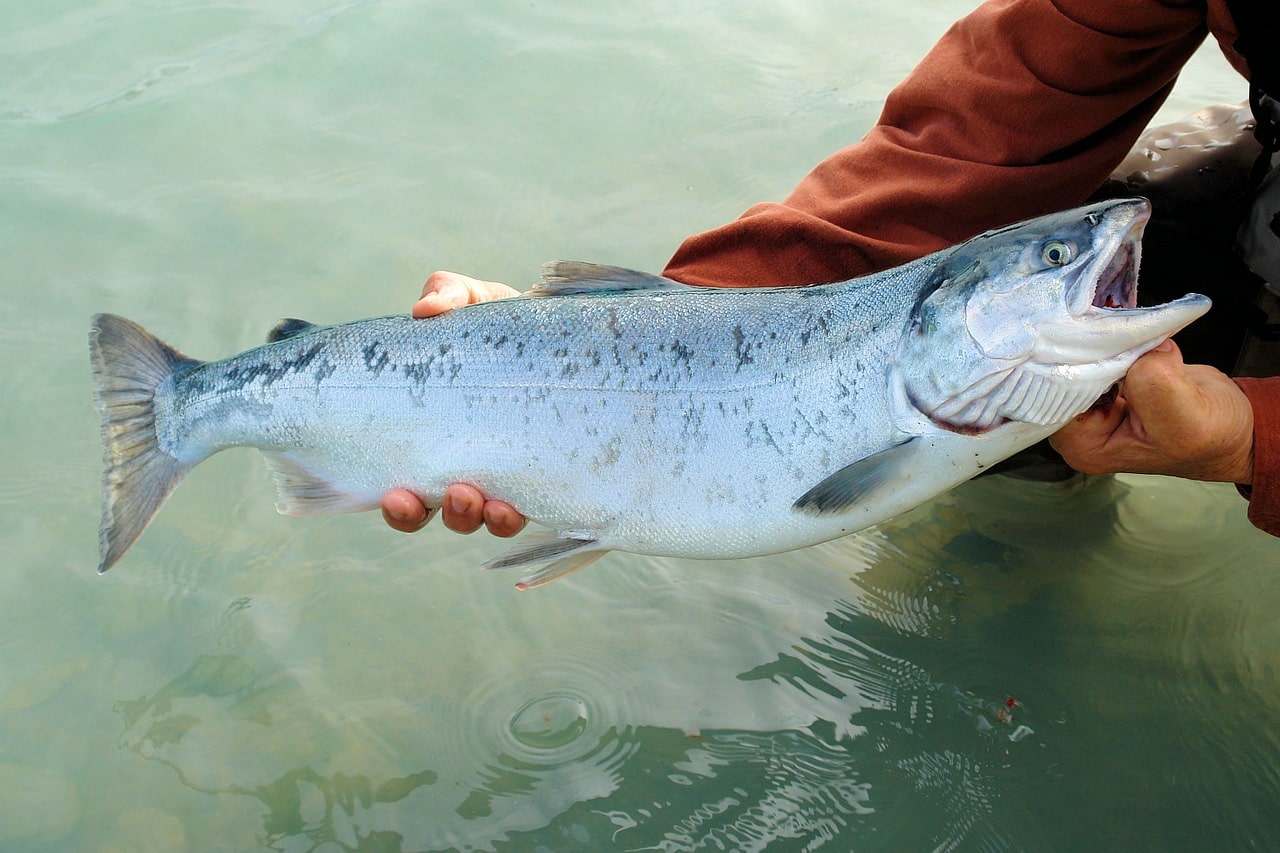Many people complain when salmon tastes fishy, even though it did come from the ocean. People are often curious about the best tasting salmon for both cooked and raw preparations.
If you are interested in preparing more salmon dishes at home and would like to be more knowledgeable about different salmon types’ flavor profiles, today would be an awesome time to learn about this great culinary ingredient.
Why Does Some Salmon Taste Fishy?
The fishy taste that you detect probably has nothing to do with the fish itself, but it has something to do with how the fish was handled and then prepared.
Improper handling of salmon can result in cross-contamination. Bacteria that are transferred onto salmon doesn’t just stay there as a neutral presence. Bacteria multiply on the fish by consuming organic matter. Bacteria eat the salmon before you.
If the fish reaches a state of decomposition due to bacterial activity, you can be certain that the decomposition will manifest in the fish’s smell and flavor. The important lesson here is never to eat fish that was not prepared properly, so you can have the comfort and safety of knowing that there’s nothing potentially problematic in the fish at all.
Fresh salmon that has been prepared properly will have the following characteristics:
- The fish shouldn’t have any strange odors at all. You may smell the ocean slightly, but that’s it. Good and viable fish has a clean and fresh smell that’s good enough to eat raw.
- Feel the fish with your finger. Good fish will have springy flesh that pushes back when you press on the surface. If the fish’s meat barely pushes back, or if you can leave deep depressions on the fish, the fish may not be as fresh as you thought it was.
- There may be an odd smell from salmon that has been sold or displayed alongside other seafood like crayfish and crabs. Avoid fish that is displayed with other seafood because cross-contamination is highly likely. This applies most especially to home cooks who are planning to prepare raw salmon at home.
Which Salmon Tastes Less Fishy?
Don’t get us wrong; salmon varieties have different flavor profiles. It’s just that they’re not supposed to taste ‘fishy’ in a bad way. Fish is supposed to taste like what it is, but the individual flavors may vary from time to time. Let’s talk about the varieties of salmon flavors across the different varieties:
- Atlantic salmon – Atlantic salmon, globally speaking, is farm-raised. There is the reason why they’re more affordable, and you can grab sandwiches made with Atlantic salmon daily. They’re not so rare, and the supply is stable. Atlantic salmon is also a natural crowd-pleaser because of its assertive flavor profile. Atlantic salmon often has less fat and less flavor compared to the wild-caught varieties.
- King salmon – The king salmon is the biggest salmon of them and can grow up to an astounding 100 pounds. The king salmon’s flavor has been described as rich and luxurious, so it easily outdoes the Atlantic salmon because of its natural richness. With the right cooking method, you can release all the bold flavors of this fish as well. All king salmon has a high-fat content, which is a big help when frying king salmon. Raw preparations like sashimi also benefit from its higher fat content.
- Sockeye salmon –The sockeye salmon is decidedly smaller than the king salmon and the Atlantic salmon, but it offers more color and texture as a result. The sockeye is notable for having a deep and almost blood-orange color that looks very pleasing on the dinner plate. When you bite into sockeye salmon, you will be immediately hit by how buttery and refined the texture and flavors are. That’s why they often use this type of salmon for making gravlax or crudo, too.
- Coho salmon – This variety is also called the silver salmon, and a large chunk of salmon caught in the Pacific are of the Coho variety. This salmon is best prepared with gentler cooking methods, or you can also consume it raw. Follow the guidelines for the safe handling and preparation of raw fish.
Does Wild Caught Salmon Taste Fishy?
Wild salmon has a more assertive flavor because of its additional fat content, so if you’re interested in a more flavor-forward meal, opt for wild-caught salmon instead. This is largely a subjective call for the people who eat the salmon. If the salmon is farm-raised, there’s not much movement in the pens, and they’re less active, too, and there’s higher competition for food.
These factors would all have an impact on the final flavor or taste of the fish. As for the ‘fishiness’ of salmon, bear in mind that sometimes, that fishy taste and smell is not connected to the type of salmon that you purchased but rather to how it was handled in the first place.
Improper handling of salmon can produce issues with its taste, so if you keep getting oddly-flavored salmon, it’s time to shift to another supermarket or fishmonger. If you plan to prepare something raw, it’s doubly important to get fish from the best possible source.
How Do You Get the Fishy Taste Out of Salmon?
The simplest and fastest way to mask salmon’s natural flavor (if you find it too fishy) is by squeezing fresh citrus over the cooked or raw fish meat.
Lemon is an obvious choice because it easily mellows the fish’s flavor and introduces a nice blend of sweetness and citrus to the fish. You cannot really go wrong with using lemon in most fish dishes, and we are talking about other fish as well, not just Atlantic salmon or pink salmon.

